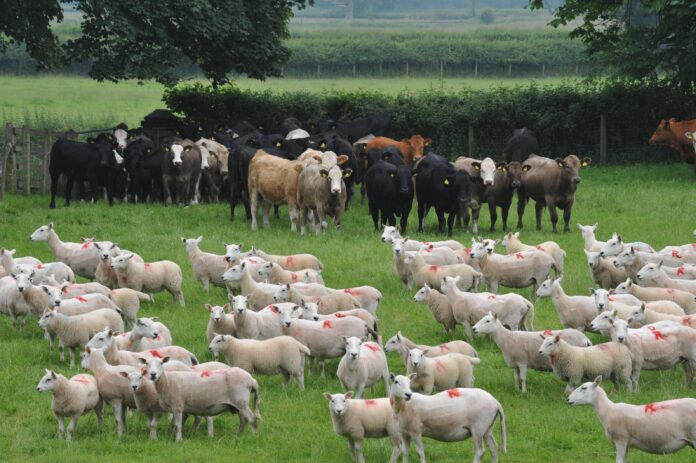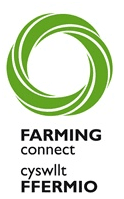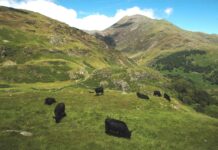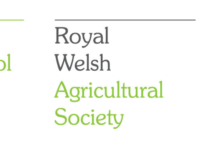A Farming Connect study of the greenhouse gas (GHG) emissions produced by red meat enterprises has shown that Welsh farms are below the benchmark for similar farms across the UK.
185 Welsh farms had a detailed carbon audit of their businesses undertaken through the Farming Connect Advisory Service during the previous programme and these have produced encouraging results.
GHG emissions produced by the beef enterprises on these farms was 17% less than the benchmark figure for upland suckler spring calving cows published in The Farm Management Handbook 2022/23, which are representative of farms throughout the UK.
At 35.61 kg CO2e/kg deadweight (DW), they were also 5.7% less than the carbon benchmark figure for lowland suckler spring calving cows throughout the UK.
For sheep enterprises, the 29.89 kg CO2e/kg DW lamb figure was on average 9.3% lower than the benchmark figure for a hill ewe flock and 2.9% less than the benchmark for a crossbred ewe flock.
What the study did show was a big variation in the total emissions per kg product for each enterprise, but further analysis gave clear reasons in most cases for the significantly high and low values.
“It was evident that there was no correlation between farm size and total emissions per output,” said Farming Connect’s Carbon Specialist Officer Non Williams.
A large proportion of the total emissions produced by beef and sheep farms was methane, deriving from enteric fermentation.
One farm carbon calculator was used for the study to provide consistency with the benchmark farms as this tool had also been utilised on the benchmark farms. Other carbon calculating tools were used to complete a carbon audit for farms beyond the study sample, with the chosen tool decided by the individual farmer and consultant supporting the work.
The carbon audits provided bespoke information on each business’ whole farm GHG emissions, up to the point when the produce left the farm gate. Estimates of carbon sequestration were given too.
The farmers involved were provided with estimates of the carbon sequestered on their farms by soil, trees and hedges in their reports.
They also had recommendations of practical measures they could take to further reduce GHG production and enhance carbon sequestration levels. These measures included improving herd and flock health, manure management and adopting reduced tillage approaches for reseeding.
“This will help Welsh farm businesses to improve efficiency as well as help work towards ‘net zero’ targets,” said Dr Williams.
The new Farming Connect Knowledge Transfer programme, which started on 1 April 2023, will continue to offer support to farm and land-based businesses in Wales.
The new Advisory Service can offer all eligible businesses up to 90% funding towards independent and confidential advice to a maximum value of £3,000.
This could include a carbon audit with recommendations on how reductions could potentially be achieved, such as through improving soil management and sequestration and through animal health and efficiency.
Although this study is a very encouraging reflection of the red meat sector in Wales, it emphasises that there is still room for improvement. Farming Connect offers a full range of services to assist Welsh farmers to reduce their products’ carbon footprint. “Further advice is available to look more in-depth at some of the recommendations, such as soil sampling and Nutrient Management Planning,” said Dr Williams.
● SAC Consulting, 2022. The Farm Management Handbook 2022/2023. Available at: https://www.fas.scot/downloads/farm-management-handbook-2022-23/.
Help keep news FREE for our readers
Supporting your local community newspaper/online news outlet is crucial now more than ever. If you believe in independent journalism, then consider making a valuable contribution by making a one-time or monthly donation. We operate in rural areas where providing unbiased news can be challenging. Read More About Supporting The West Wales Chronicle



























